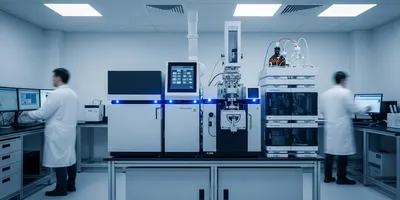Mass Spectrometry (MS) is the gold standard for molecular identification and quantitation. However, the terminology is dense, and the price differential between a "rugged workhorse" and a "research grade" instrument can be half a million dollars.
Whether you are testing pesticide residues in food, analyzing biotherapeutics, or monitoring environmental pollutants, the choice of mass analyzer determines your limits of detection and your throughput.
This guide provides the framework to navigate the trade-offs between sensitivity, resolution, and speed, helping Lab Managers secure an instrument that delivers ROI without over-specifying capabilities.
1. Understanding the Technology Landscape
The first fork in the road is the inlet (LC vs. GC), but the engine of the decision is the analyzer.
Core Analyzer Technologies
- Single Quadrupole (SQ):The rugged workhorse. Low resolution, nominal mass only.
- Best for: Routine confirmation of known compounds, QC monitoring.
- Triple Quadrupole (QqQ): The gold standard for quantitation. Excellent sensitivity and selectivity (MRM mode).
- Best for: Pesticide screening, toxicology, clinical diagnostics, targeted quantitation.
- Time-of-Flight (TOF) / Q-TOF:High resolution and fast scanning. Measures accurate mass to identify "unknowns."
- Best for: Drug discovery, non-targeted screening, metabolomics.
- Orbitrap / FT-MS:Ultra-high resolution and mass accuracy.
- Best for: Proteomics, complex structure elucidation, and confirming elemental composition.
2. Critical Evaluation Criteria: The Decision Matrix
Lab Managers should map their application to the hardware using this decision flow.













